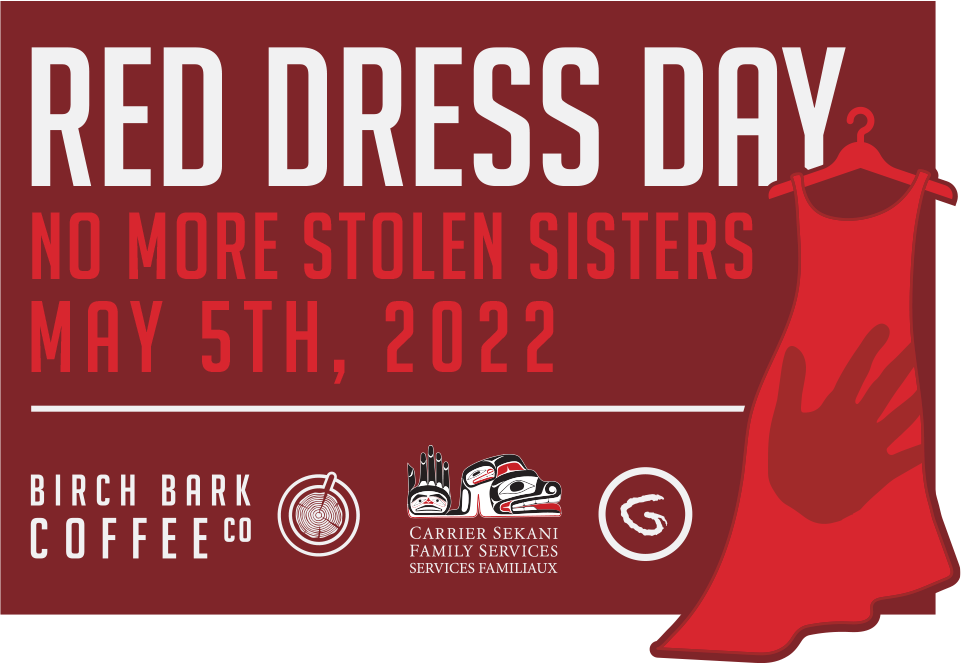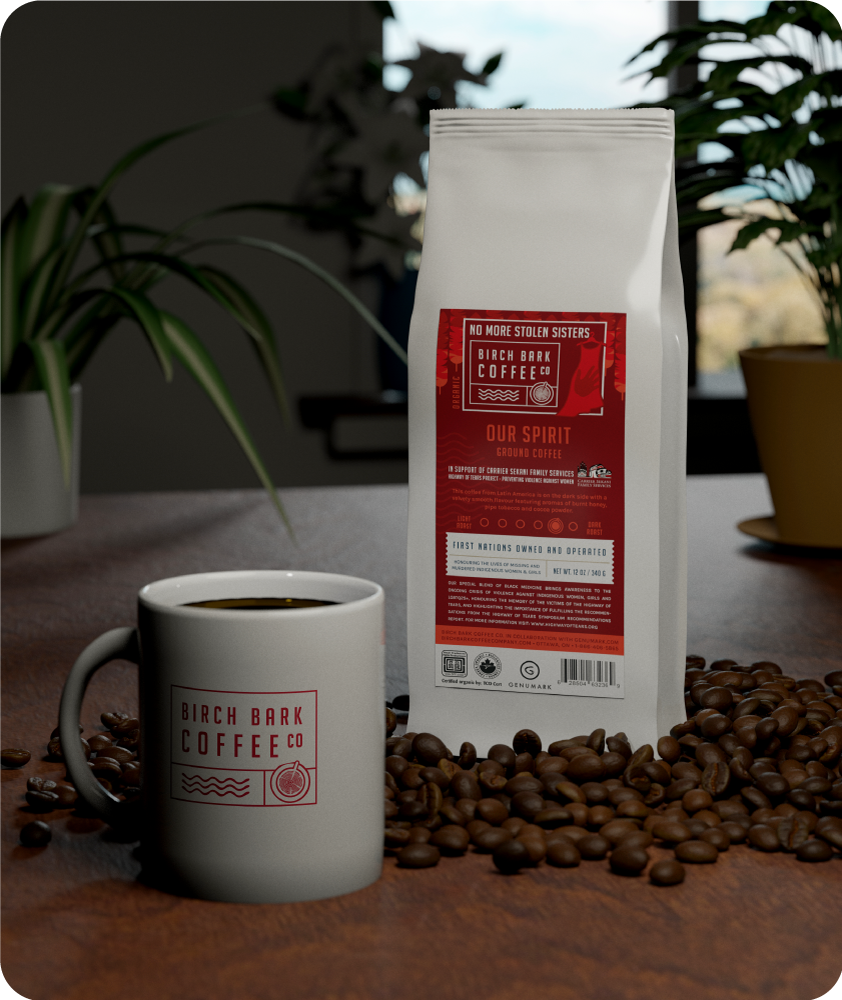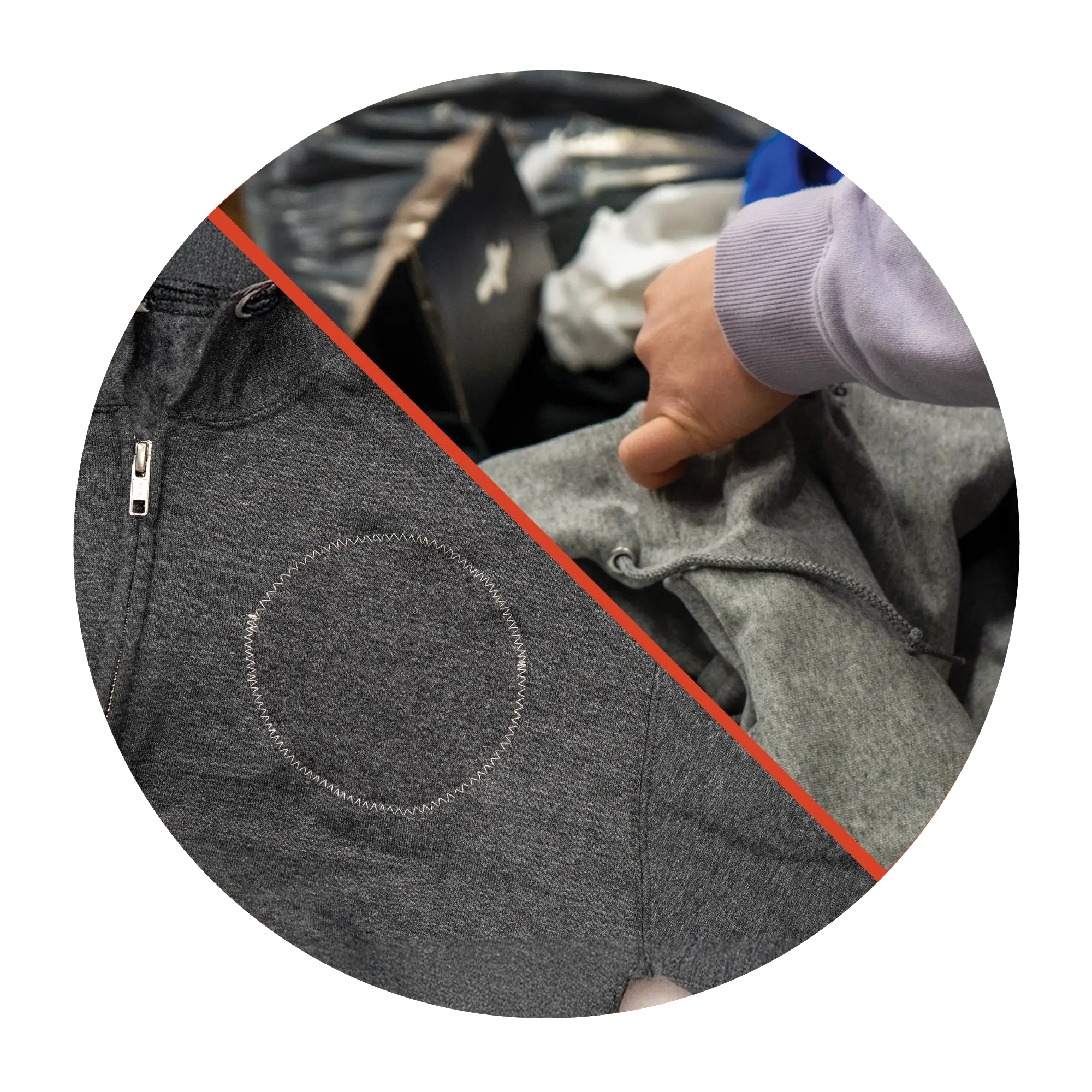
May 5th 2022 is Red Dress Day, Canada’s National Day of Remembrance and Action on Missing and Murdered Indigenous Women And Girls.
 Genumark is committed to using our platform to benefit and build our global community — a rising tide lifts all ships, after all. We are proud of our ongoing partnership with First Nations owned & operated Birch Bark Coffee Co., through which we have helped our clients support Birch Bark’s every-day effort to provide clean water to Indigenous communities facing boil-water advisories.
Genumark is committed to using our platform to benefit and build our global community — a rising tide lifts all ships, after all. We are proud of our ongoing partnership with First Nations owned & operated Birch Bark Coffee Co., through which we have helped our clients support Birch Bark’s every-day effort to provide clean water to Indigenous communities facing boil-water advisories.
We’ve also made it possible for our clients to show their commitment to Reconciliation, by supporting the Downie Wenjack Fund for Orange Shirt Day. And through our recent pre-order campaign for Birch Bark’s OUR SPIRIT blend of coffee for Red Dress Day, we have shone a spotlight on the need for action on Canada’s Missing and Murdered Indigenous Women and Girls (MMIWG), by supporting the Carrier Sekani Family Services’ (CSFS) Highway of Tears Project.
We want to extend a heartfelt thanks to all our clients for recognizing the importance of this day, and we urge you to read the Highway of Tears Symposium Recommendation Report, to learn what more needs to be done to create a fair, free and safe world for all Indigenous people, especially women, girls and two-spirit people.
We recently asked the CSFS’s Elsie Wiebe to tell us what Red Dress Day means to her.
EW: Red Dress Day is a powerful campaign visually, as seeing an empty red dress hung outdoors with the person absent reminds us of the thousands of missing and murdered women, girls and LBTQQIA+ people we’ve lost. As Canadians, we are missing mothers, doctors, lawyers, aunties, sisters, artists, teachers or whatever roles each one of these women would have filled in our lives.
Some people hold inaccurate negative stereotypes of who is missing while in fact, each one of our missing loved ones is missed by family members and friends, and each one was taken too soon with a full life ahead with dreams and goals they and we will never realize and experience.
GMK: That is an extremely powerful statement. Indigenous women are disproportionately the victims of violence in Canada* – a direct result of colonization, systemic racism, and the residential school system. As many Canadians are now making an effort to understand our full history, and overcome those stereotypes, what can we all do to recognize and eliminate violence against Indigenous women and girls?
EW: We’ve been told how to recognize and eliminate violence against indigenous women and girls in the Calls for Justice that came from the National Inquiry Into Indigenous Women and Girls. So, the most effective thing we can do is to get familiar with the calls. Challenge yourself to read them daily and talk about it with your friends, coworkers, family members. Search up the Calls for Justice online and commit to reading through a few each day until you’ve made your way through—and then read through them again.
We need to remember, the Calls for Justice came from the thousands of heart wrenching personal experiences told by Indigenous family members of missing or murdered women. Each of those calls are achievable with actions each of us can help put into place. We can all address negative stereotypes and racism towards Indigenous women. We can all read Indigenous books and listen to Indigenous music and podcasts.
We can all be part of strengthening our culture in Canada to no longer tolerate the levels of discrimination that we know have been perpetuated in our schools, churches, hospitals and other areas by choosing to be an active part of positive change.
You can also sip Birch Bark’s OUR SPIRIT coffee blend with us in solidarity to help support the cause!
Recommended resources to educate yourself on the crisis of Missing and Murdered Indigenous Women and Girls:
- National Inquiry Into Missing and Murdered Indigenous Women and Girls
- Native Justice Coalition
- Native Women’s Association of Canada Fact Sheet: Violence Against Aboriginal Women
Books & Film:
- Concordia University of Edmonton MMIWG Book & Film List
- Stolen Sisters, by Emmanuel Walter
- That Lonely Section of Hell, Lorimer Shenher
Podcasts:
Footnotes:
*Indigenous women are 12 times more likely to be murdered or to go missing than members of any other demographic group in Canada, according to the OCRCC. The Native Women’s Association of Canada research indicates that homicides involving Aboriginal women are more likely to go unsolved. Only 53% of murder cases in NWAC’s Sisters In Spirit database have been solved, compared to 84% of all murder cases across the country.

Please note:
While pre-orders of OUR SPIRIT are now closed, all of Birch Bark Coffee Co.’s coffee directly helps Indigenous communities in Canada by helping to provide them with clean water, while also supporting the global Indigenous population through their SPP Producers certification. The Genumark team can help you add any Birch Bark blend to any project, and are happy to talk about co-branding options.
Watch for our next collab with Birch Bark in August 2022, as we support Orange Shirt Day once again.
In the meantime, donate to the Carrier Sekani Family Services’ Highway of Tears Project here.
Include Birch Bark coffee in your next kit, or reach out to your Genumark team to hear about other initiatives we’re working on. Want to support other important causes through branded merchandise?



